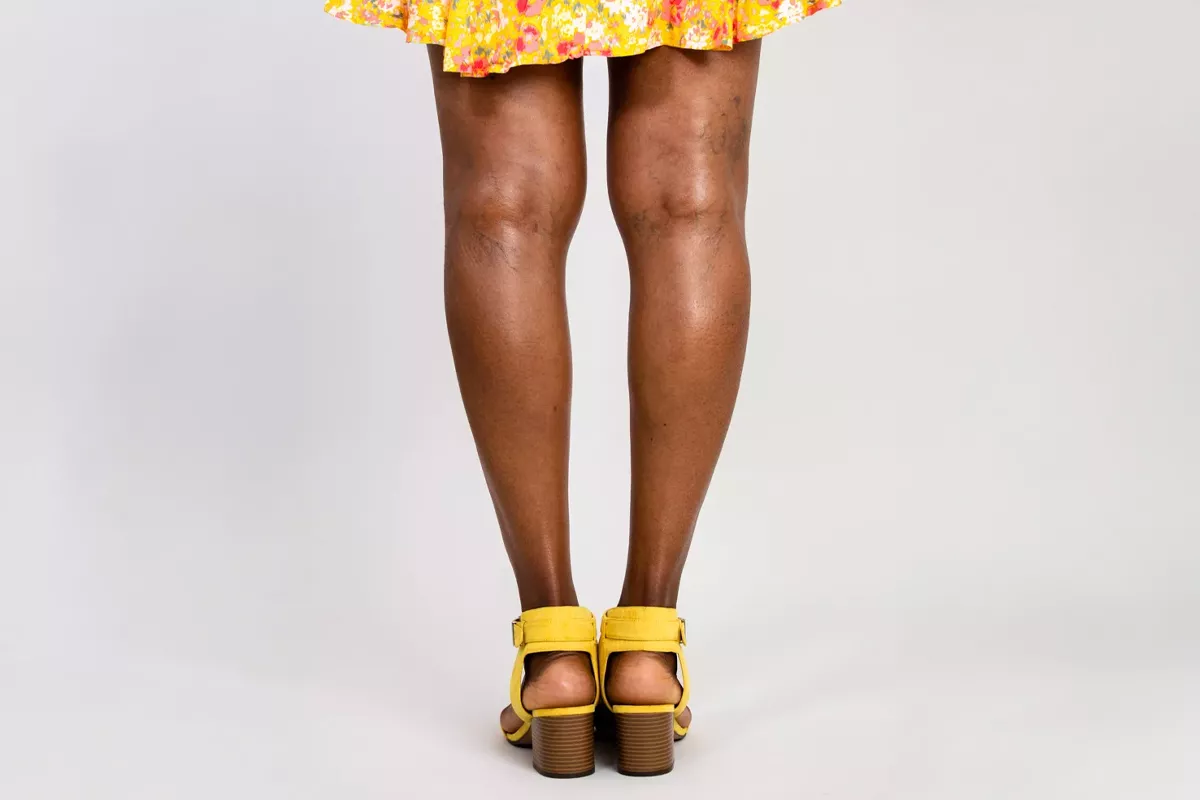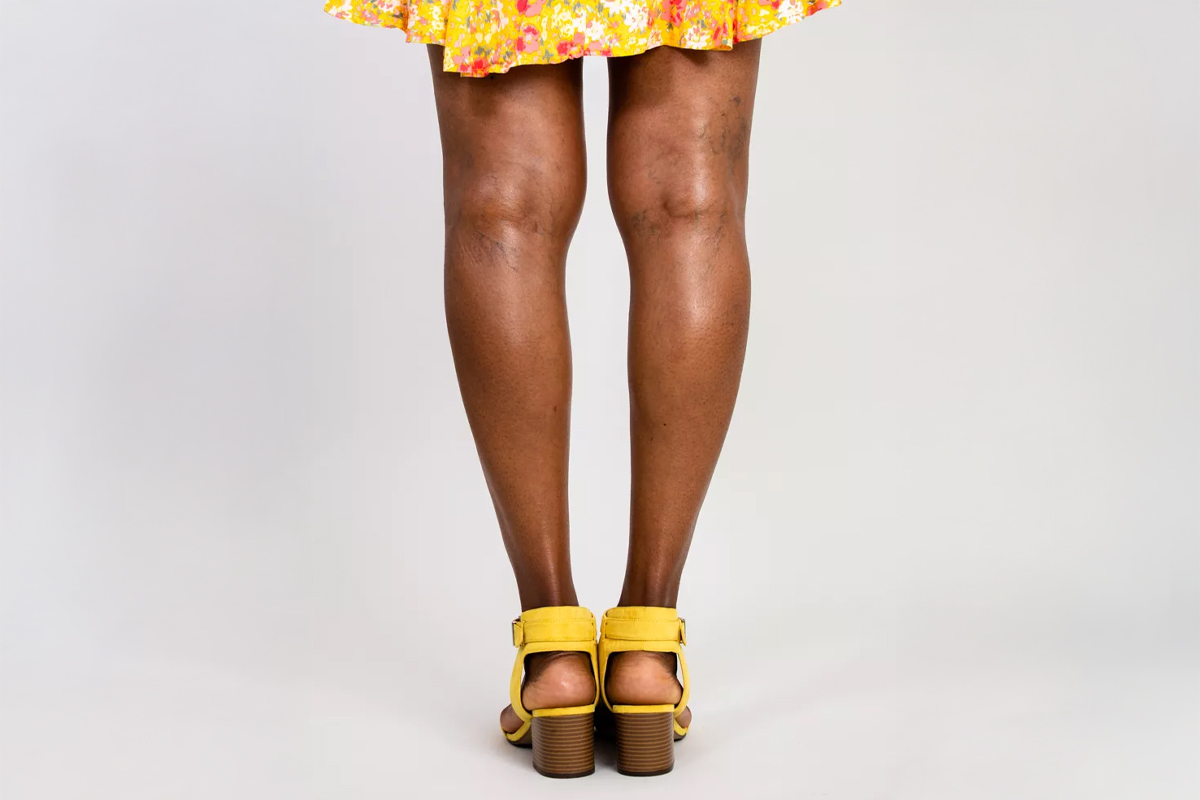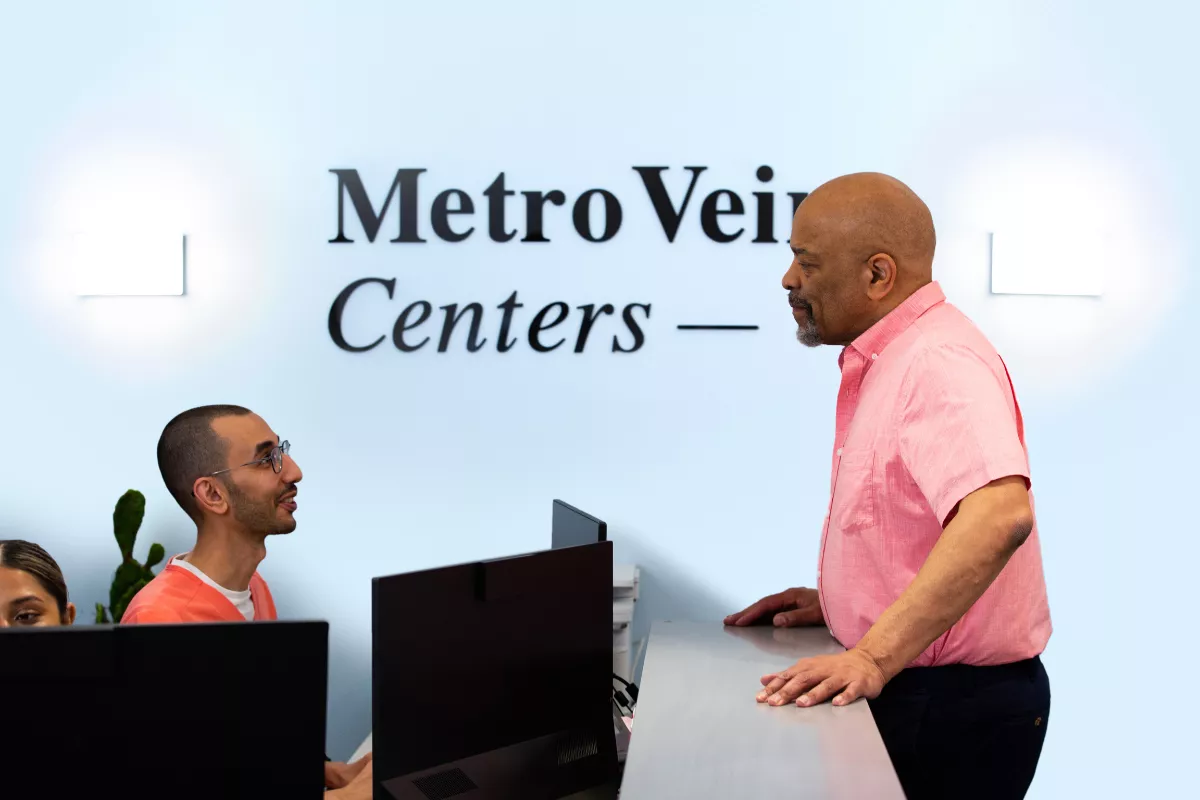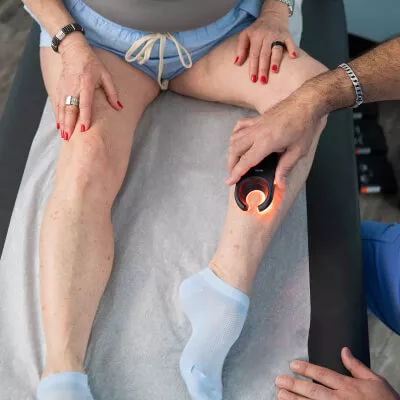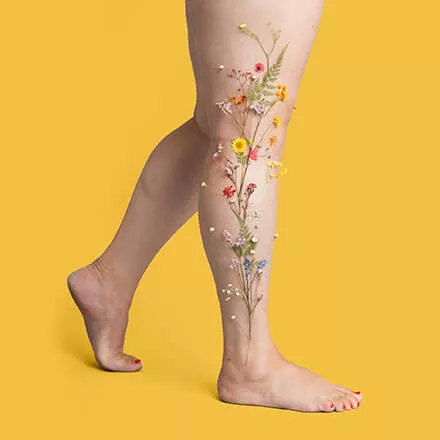Are varicose veins dangerous to my health? This is one of the most frequently asked questions from our patients at Metro Vein Centers. The answer is yes; in some cases, varicose veins do have the potential to become dangerous.
Varicose veins are large, bulging veins that can cause pain and other symptoms in your legs. Because varicose veins are associated with a wide variety of symptoms, health factors, and risks, it's impossible to classify everyone suffering from the condition into one category.
You may be part of the 1 in 3 adults over age 45 suffering from varicose veins. In some cases, varicose veins may just be cosmetic, but as vein disease progresses, health issues can arise and lead to complications.
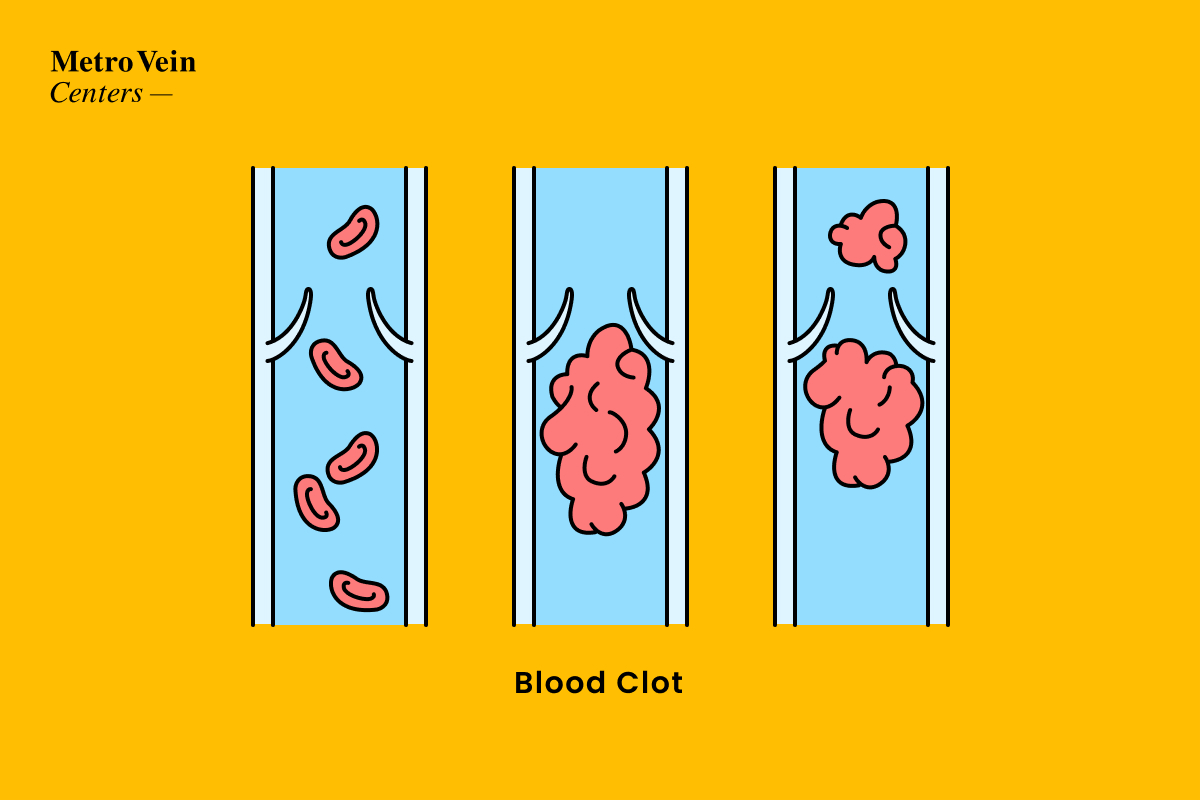
Understanding Normal Vein Function
Veins serve a vital role in our circulatory system. Veins have valves that allow blood to flow toward the heart but not in reverse. These valves are especially important in the lower extremities (the legs), where blood must travel against gravity when standing upright.
In a problematic vein, the damaged valves start to leak, allowing blood to flow in both directions. This causes fluids to build up inside the veins and not know where to go, which is why varicose veins can be bulging, raised, twisted, and painful.
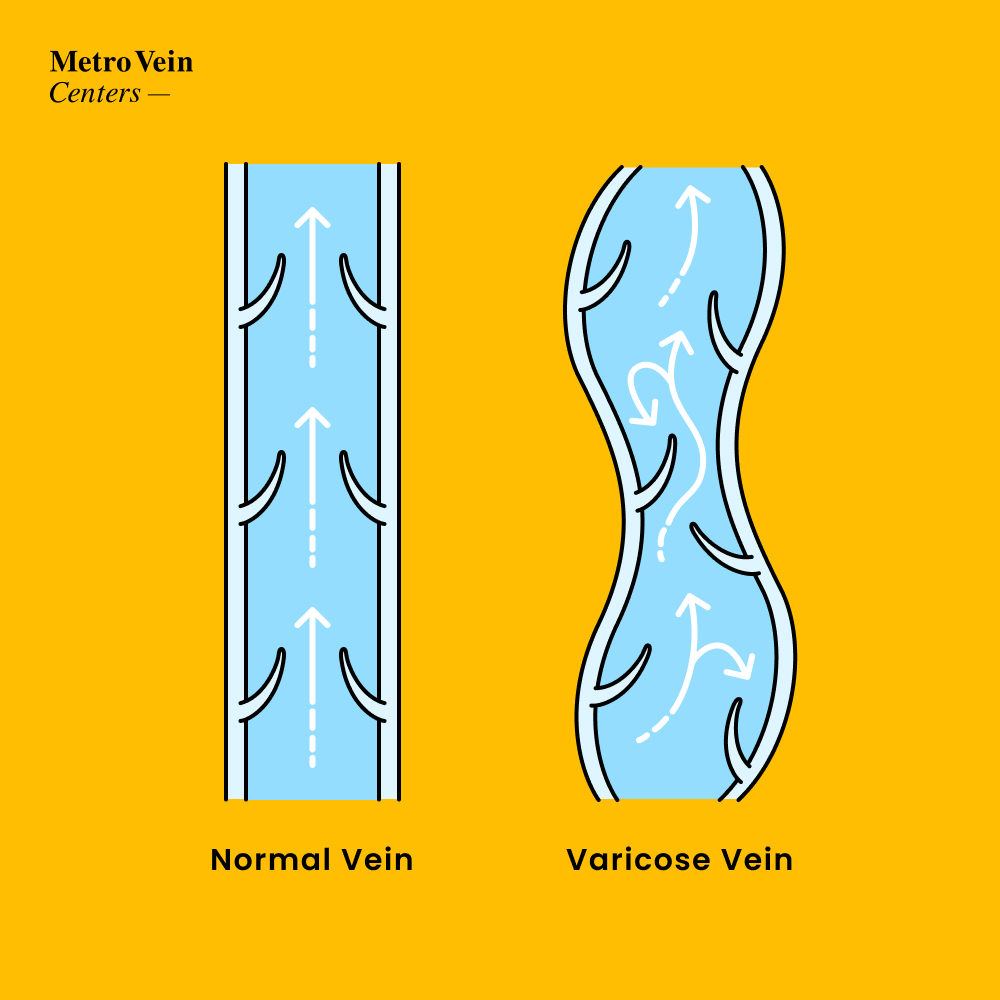
Causes of Varicose Veins
Varicose veins develop when blood pressure increases in the veins, weakening the valves and making them less efficient over time. This is venous hypertension. Blood pools in the veins, which become enlarged and swollen.
Genetic predispositions and lifestyle choices may increase one's chances of developing varicose veins. Risk factors for the development of varicose veins include being a woman, being pregnant, being over the age of 45, or having a close family member with vein disease.
Lifestyle choices that can increase your risk of varicose veins include smoking, being overweight, consuming large amounts of caffeine and alcohol, and sitting for long periods.
Common Symptoms and Appearance
Varicose veins can produce no symptoms at all or can manifest extreme symptoms. One leg may hurt while the other is fine. Or perhaps veins on your thigh and the back of your knee will be itching while your calf feels fine.
Mild symptoms of varicose veins include discomfort and bulging, twisted, visible veins on your legs. More extreme symptoms include leg pain, heaviness and fatigue in the lower extremities, swelling (edema) in the ankles or legs, bleeding, cramping, itchiness, sensitivity, and more. Varicose vein symptoms can worsen over time and may not go away without medical treatment.
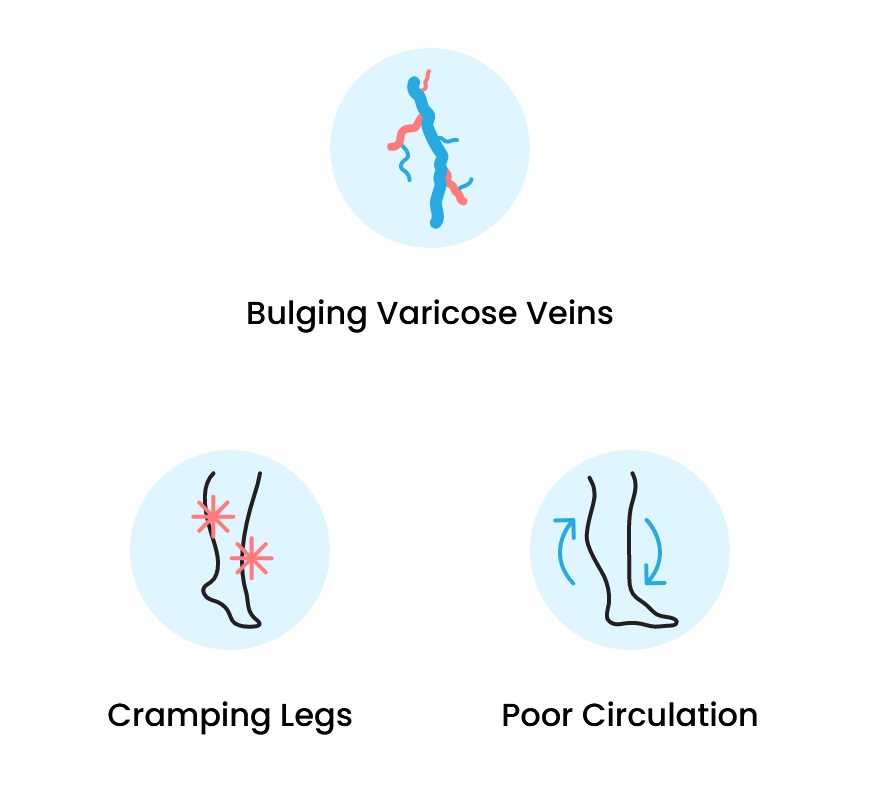
Potential Complications of Untreated Varicose Veins
Varicose veins, even when asymptomatic, will worsen over time if left untreated and could lead to more severe complications. These include:
- Loss of mobility
- Blood clots (deep vein thrombosis - DVT or thrombophlebitis)
- Venous ulcers
- Poor circulation
- Varicose eczema
- Tissue discoloration or damage (lipodermatosclerosis)
- Phlebitis
When Varicose Veins Become Dangerous
If left untreated, any of these complications could be a sign of more advanced vein disease, which could become dangerous. The only way to know if your symptoms are a sign of a dangerous condition is to be evaluated by a vein specialist as soon as possible.
Metro Vein Centers has more than thirty board-certified, nationally accredited vein specialists across seven states, and we'll be able to recommend the best next steps for your legs. We accept over 200 insurance plans, and over 97% of our vein treatments are covered by insurance! At your MVC, we'll work to determine the optimal treatment plan for you after your initial consultation.
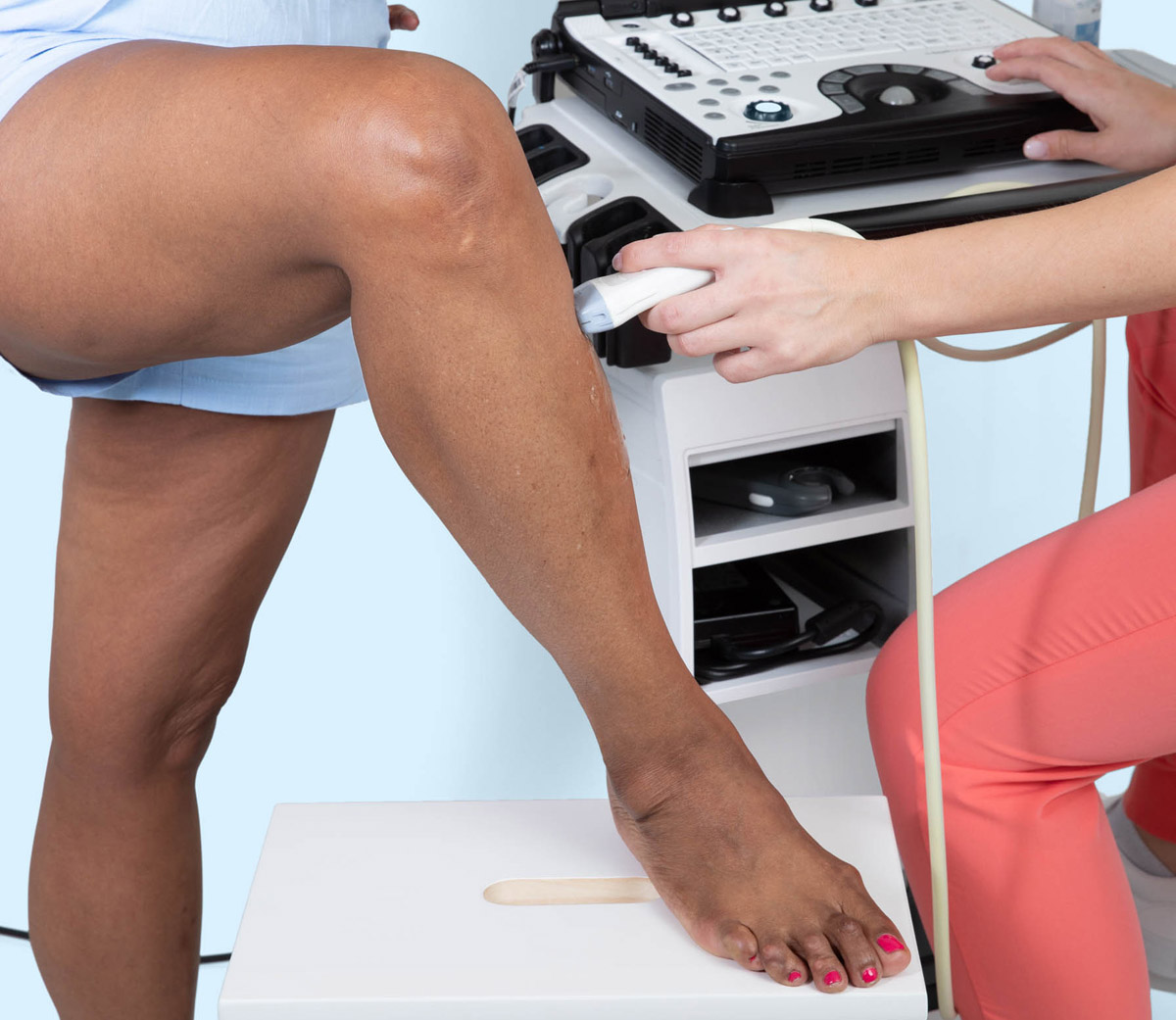
Diagnostic Methods for Assessing Vein Health
The evaluation process for diagnosing vein health and vein disease usually starts with discussing the progression of symptoms, lifestyle choices, and family history. The most common non-invasive test during the evaluation process is ultrasound imaging. Ultrasound imaging can assess vein health by providing detailed images of blood flow and vein structure and can be used to diagnose conditions like varicose veins, spider veins, deep vein thrombosis (DVT), and chronic venous insufficiency (CVI), also known as venous stasis.
Treatment Options for Varicose Veins
Some treatment options for varicose veins that are available today include:
- Radiofrequency Ablation (RFA)
- Sclerotherapy
- Compression Therapy
- Phlebectomy
- Laser treatment
- Endovenous Ablation
- Ambulatory Phlebectomy
When you come in for a complimentary vein screening with one of our board-certified Metro Vein Centers vein specialists, we create a custom vein therapy plan to address any vein disease symptoms you're experiencing.
Schedule Your Free Consultation
Risk Factors for Developing Complications
Certain genetic and lifestyle risk factors may increase the likelihood of varicose-vein-related complications. These include:
- A family history of varicose veins
- Being over the age of 45 (especially over 65)
- Being female
- Being pregnant
- Obesity
- Standing or sitting for prolonged periods
- A history of blood clots
- Smoking
- Previous leg injuries
Not sure about your symptoms or risk factors?
Take our Vein Health Assessment
When to Seek Medical Attention
If you have any symptoms, your daily activities are impacted, or you have large, visible leg veins, we recommend that a vein specialist examine your vein disease and underlying issues. If you develop leg sores or ulcers, experience redness or areas that are warm to the touch or are experiencing bleeding from a varicose vein, you should seek immediate medical attention.
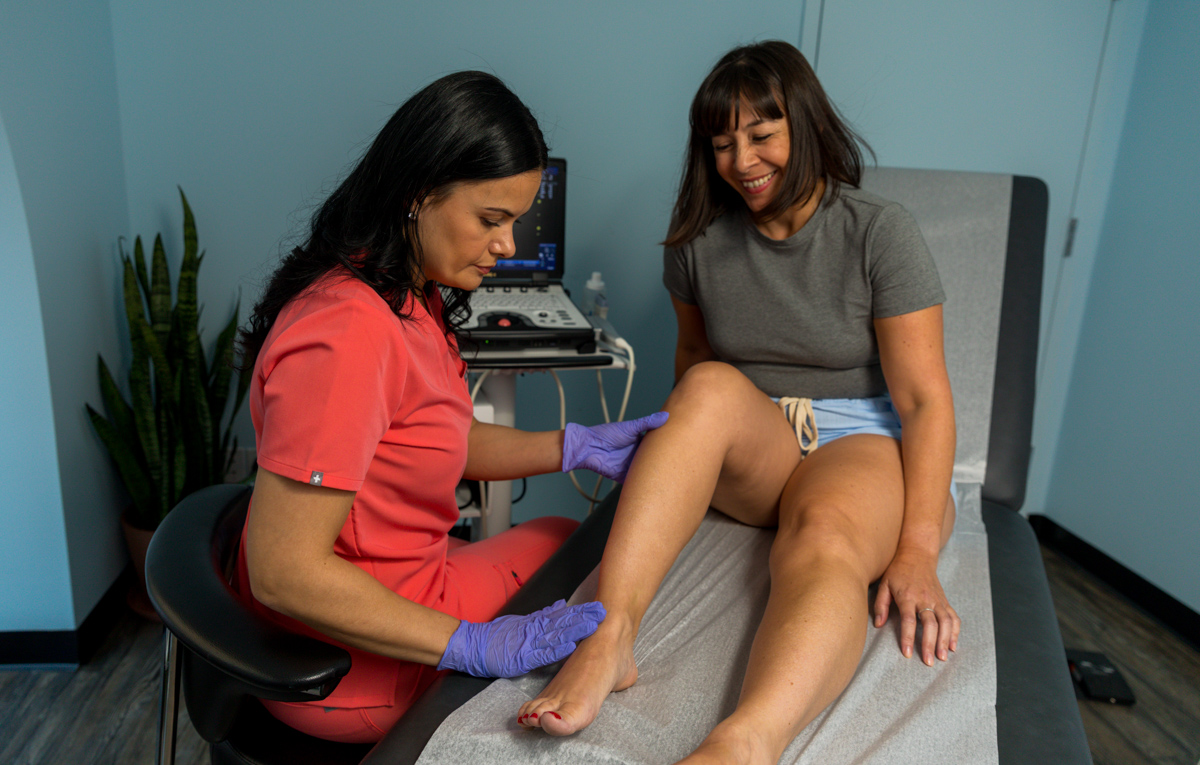
Preventive Measures and Lifestyle Changes
Some easy-to-implement changes you can start doing today to improve your vein health and prevent varicose veins include maintaining a healthy weight, exercising regularly, avoiding long periods of sitting and standing, and eating a balanced diet.
Long-Term Outlook and Management
Varicose veins can be managed with regular checkups and an individualized treatment plan, but it is a condition that will not go away on its own and can worsen over time if left untreated.
With the appropriate treatment and lifestyle changes, you can alleviate your symptoms and prevent further vein damage in your legs. Most patients report feeling better in as little as a week after treatment.
"Dr Garrison and his staff exceeded all expectations. The office is comfortable and clean, and the staff is very attentive. I have pain relief and great results in my legs' appearance."
Kim, Hackensack
Frequently Asked Questions
Can varicose veins lead to blood clots?
Yes, in some severe cases, varicose veins can lead to blood clots, highlighting the importance of evaluation and treatment.
How can I tell if my varicose veins are becoming dangerous?
A vein specialist can evaluate your symptoms and make the appropriate treatment recommendations. If you experience redness, areas that are warm to the touch, leg sores or ulcers, or are experiencing bleeding from a varicose vein, you should seek immediate medical attention.
Are there any life-threatening complications associated with varicose veins?
In rare cases, bleeding, blood clots, and infection could lead to life-threatening complications. This is why seeking care for varicose veins from a board-certified vein doctor is so important.
Do varicose veins increase the risk of deep vein thrombosis?
Varicose veins are considered a risk factor for developing deep vein thrombosis.
Can pregnancy-related varicose veins be dangerous?
Pregnancy-related varicose veins are relatively common and are usually not dangerous for you or your baby. In rare cases, varicose veins can lead to deep vein thrombosis (DVT), which could be life-threatening if the clots travel to the lungs. Your OBGYN can advise and refer you to a vein doctor when necessary.
What's the connection between varicose veins and chronic venous insufficiency?
Chronic venous insufficiency, a condition in which the veins in the legs cannot effectively pump blood back to the heart, can lead to varicose veins.
How often should I have my varicose veins checked by a doctor?
It is always a good idea to consult with a vein specialist about your varicose veins, even if you are not experiencing any symptoms. You should also be checked by a doctor as soon as you notice any visible changes or symptoms like swelling, pain, or discomfort.
Are there any natural remedies that can prevent varicose veins from becoming dangerous?
While natural remedies can't make varicose veins go away, they can reduce discomfort and even help prevent them from worsening. These include:
- Exercising
- Maintaining a healthy weight
- Avoiding sitting or standing for long periods
- Elevating your legs
- Wearing compression stockings
- A healthy diet
- Wearing loose clothing
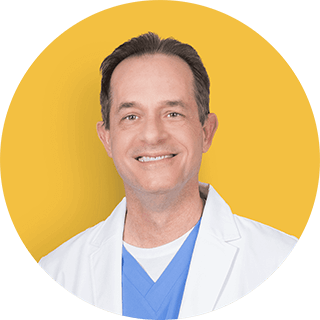
Dr. Philip LoPresti
Meet Dr. Philip LoPresti DO, DABVLM, FACS, a board-certified vein specialist and surgeon with over 20 years of experience. Schedule an appointment with him in Queens, NY today.
Meet Dr. Philip LoPresti
Trusted insight from the nationally accredited, board-certified vein doctors at Metro Vein Centers.


